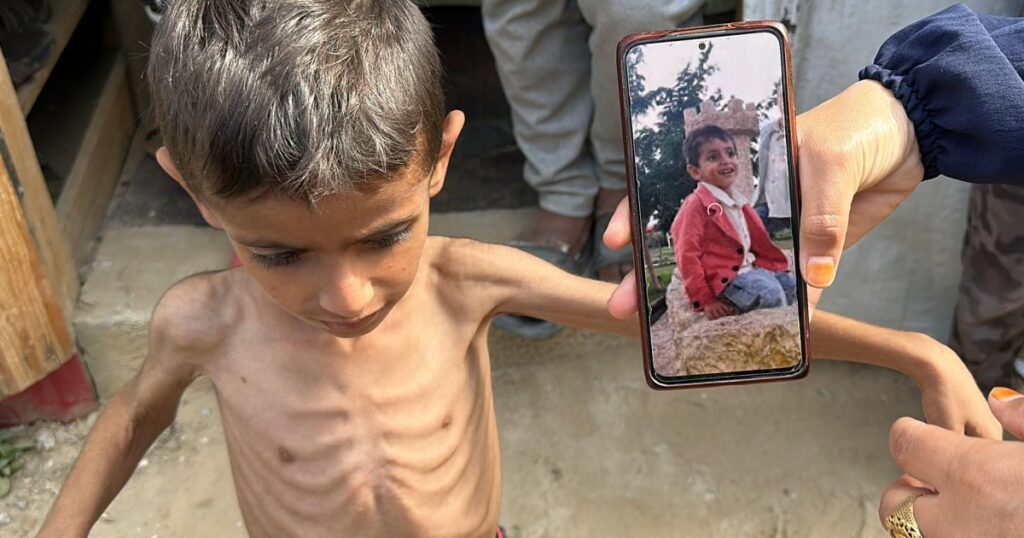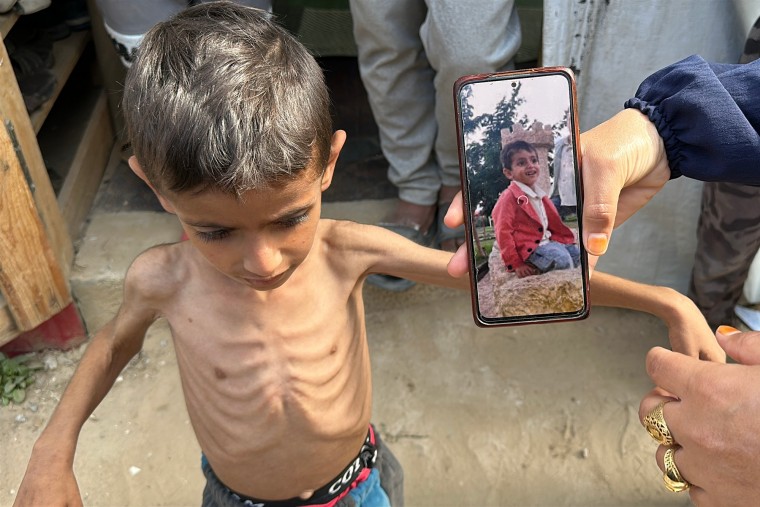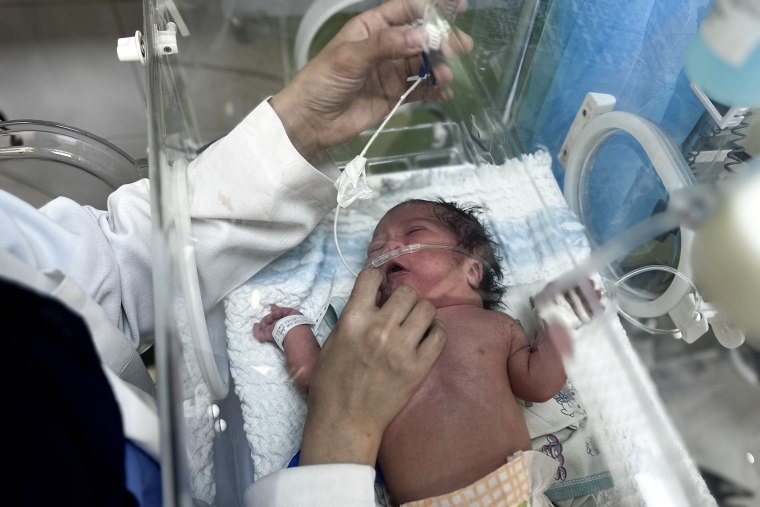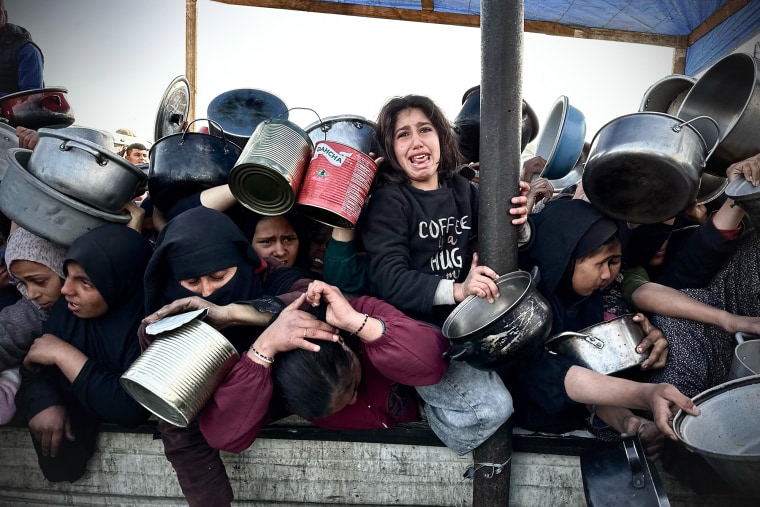
With sunken cheeks, knobbly knees on stick-thin legs and ribs jutting out of his chest, Osama Al-Raqab hardly resembles a photo that showed the 6-year-old smiling into the camera.
“He used to be happy and full of life,” Osama’s aunt, Nour Sameer Al-Raqab, told NBC News’ crew in southern Gaza’s Bani Suheila on Sunday as she held up the image from before the war began next to the boy’s face. “Now, he looks like a skeleton.”

Osama’s grandmother, Um Ahmad Al-Raqab, called on Israeli authorities to allow her grandson to be evacuated out of Gaza for treatment for cystic fibrosis. The boy had the ailment, which can make it difficult to maintain a healthy weight, when the war began and is now suffering with acute malnutrition.
“If he stays like this, he will die,” she said.
He is among many struggling to survive in the besieged Palestinian enclave as it endures a month-and-a-half-long blockade that has halted the flow of aid and goods — the longest suspension of aid since the war began.
“We are witnessing acts of war in Gaza that show an utter disregard for human life,” humanitarian and health bodies, including United Nations agencies, the World Health Organization and the World Food Programme, warned in a statement this month.
In its latest humanitarian situation update, the United Nations Office for the Coordination of Humanitarian Affairs warned that with no aid entering since March, when Israel launched its blockade, malnutrition and other preventable conditions were expected to rise, increasing the risk of child deaths. It added that medicines were rapidly running out.

Israel has maintained amid mounting criticism over its aid blockade that there is “no shortage of humanitarian aid in the Gaza Strip” after it allowed the entry of thousands of trucks into the enclave during the ceasefire. Asked to comment on the matter, COGAT, Israel’s military liaison with the Palestinians, referred NBC News to Israeli Prime Minister Benjamin Netanyahu’s office. A spokesperson did not immediately respond to a request for comment.
In Khan Younis, video shot by NBC News’ crew showed children holding empty pots and pans as they crowded around a soup kitchen.
“If I don’t get food, we won’t eat,” one little girl, Bara’a Abu Mousa, told NBC News’ crew after finding herself pushed out from the clamoring crowd. “We have nothing at home.”

After waiting four hours, Bara’a was given a small portion of rice to be shared with her family.
After shattering a ceasefire that brought relative peace to Gaza on March 18, Israeli forces have shelled and bombed the enclave without encountering virtually any opposition.
The Hamas terrorist attack Oct. 7, 2023, killed 1,200 people and saw some 250 taken hostage, according to Israeli counts, marking a major escalation in a decadeslong conflict. Israel’s ensuing offensive has killed more than 50,800 people — many of them women and children — according to health officials in the Gaza Strip, and destroyed much of the enclave. More than 50 hostages remain in Gaza, both dead and alive.
Efforts to renegotiate and resume the ceasefire have so far proved fruitless, with each side blaming the other.
 Latest World Breaking News Online News Portal
Latest World Breaking News Online News Portal






